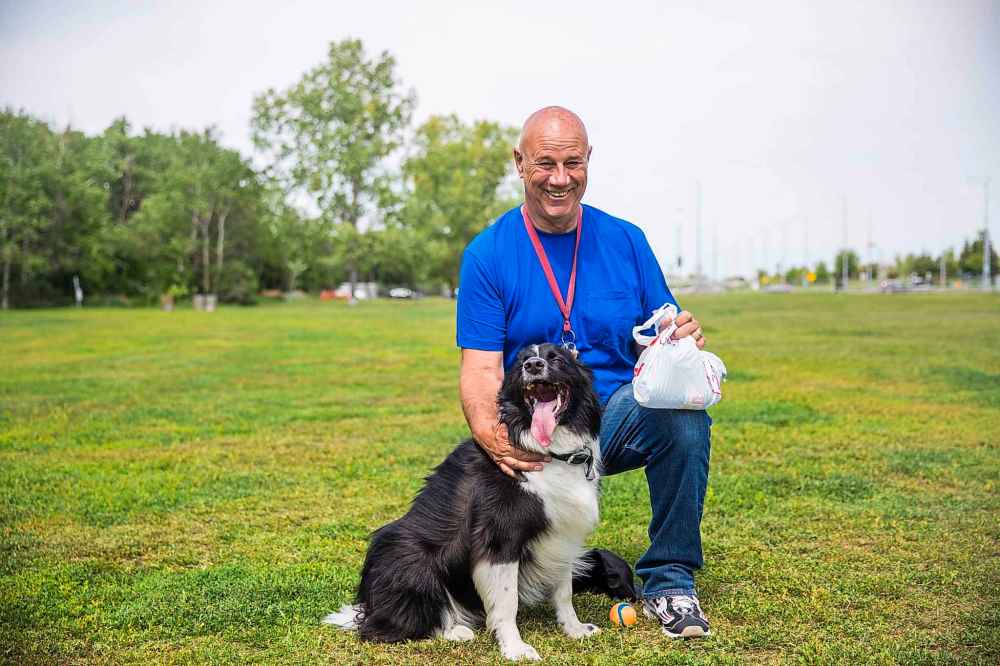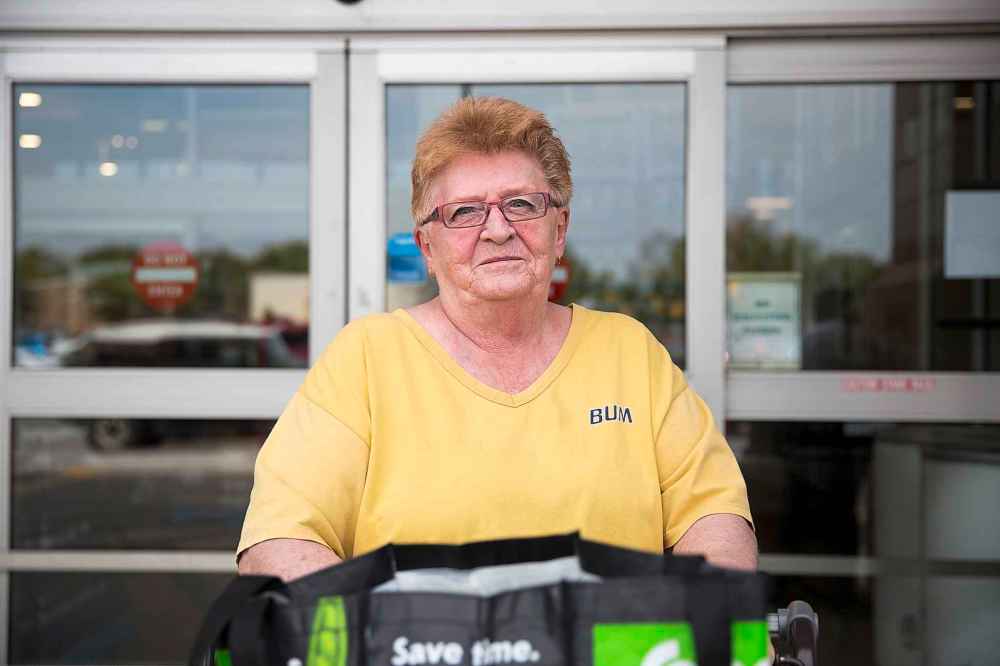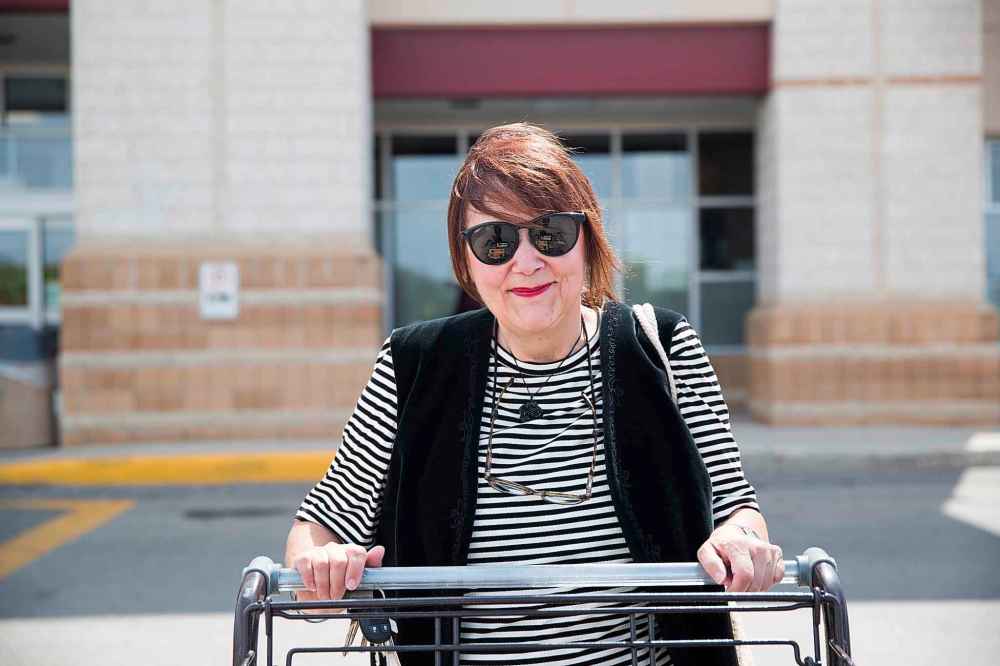Sobeys eliminating plastic bags by February, offering paper instead
Read this article for free:
or
Already have an account? Log in here »
To continue reading, please subscribe:
Monthly Digital Subscription
$0 for the first 4 weeks*
- Enjoy unlimited reading on winnipegfreepress.com
- Read the E-Edition, our digital replica newspaper
- Access News Break, our award-winning app
- Play interactive puzzles
*No charge for 4 weeks then price increases to the regular rate of $19.00 plus GST every four weeks. Offer available to new and qualified returning subscribers only. Cancel any time.
Monthly Digital Subscription
$4.75/week*
- Enjoy unlimited reading on winnipegfreepress.com
- Read the E-Edition, our digital replica newspaper
- Access News Break, our award-winning app
- Play interactive puzzles
*Billed as $19 plus GST every four weeks. Cancel any time.
To continue reading, please subscribe:
Add Free Press access to your Brandon Sun subscription for only an additional
$1 for the first 4 weeks*
*Your next subscription payment will increase by $1.00 and you will be charged $16.99 plus GST for four weeks. After four weeks, your payment will increase to $23.99 plus GST every four weeks.
Read unlimited articles for free today:
or
Already have an account? Log in here »
Hey there, time traveller!
This article was published 31/07/2019 (2326 days ago), so information in it may no longer be current.
Manitoba consumers carry plastic bags out of stores just a few at a time every day. Add them up and the number of non-biodegradable conveniences at the landfill and littering city streets is, astonishingly, in the tens of millions.
But by February they’ll no longer be part of the shopping experience at Sobeys. The grocery chain announced Wednesday it’s ditching plastic bags for paper in all of its 225 grocery stores in the new year.
The company will then phase in an end to plastic bags at its Safeway and FreshCo stores.

“So many of our customers and our employees have told us loud and clear — they want us to use less plastic — and we agree with them,” said Michael Medline, president and CEO of the grocery giant’s parent company, Empire Co Ltd., in a prepared statement Wednesday.
The move comes a month after Ottawa announced its plan to ban single-use plastics across the country as early as 2021.
The Stellarton, N.S.-based company estimates about 225 million bags will be taken out of circulation when the changes are made.
Sobeys will also introduce reusable mesh produce bags made from recycled water bottles for customers picking fresh fruits and vegetables next month.
About 160 million plastic bags are distributed in Manitoba every year — the equivalent of four times the mass of a blue whale, according to Winnipeg-based Green Action Centre.
These bags break down into microplastics that pollute soil and water, said the centre’s living well co-ordinator, Jane Roussak.
“The reality is, Manitoba doesn’t have legislation controlling plastic use,” Roussak said. “It’s on the businesses to take on their own initiatives.”
Many large retail chains across Canada charge customers for each plastic bag at the checkout.

The manager of a Food Fare store said the local grocery chain has similar plans to tackle plastics in store.
Wajih Zeid, who manages the Winnipeg chain’s Crestview location, said the company is in contact with a supplier who produces plant-based bags.
Food Fare locations recycle all cardboard and donate old muffins and bread to local food banks. The stores also stock products past their “best before date” on a designated shelf at discounted prices.
Retailers taking action
• Giant Tiger Stores Ltd.
The discount retailer said it’s currently reviewing the role of plastic bags in its stores. When customers bring reusable bags to a location, a credit of three cents for every reusable bag used goes towards their purchase. The initiative is one the company is “particularly proud of,” said Alison Scarlett, spokeswoman for Giant Tiger Stores Ltd.
• Walmart Canada
By the end of 2019, Walmart Canada’s corporate-office and distribution-centre cafeterias will no longer supply single-use plastics. The company also has a target to reduce plastic bags at its checkouts by 50 per cent by 2025. Its strategy to reduce plastic waste involves minimizing use, recycling and promoting “expanding recycling capabilities across Canada.”
• Giant Tiger Stores Ltd.
The discount retailer said it’s currently reviewing the role of plastic bags in its stores. When customers bring reusable bags to a location, a credit of three cents for every reusable bag used goes towards their purchase. The initiative is one the company is “particularly proud of,” said Alison Scarlett, spokeswoman for Giant Tiger Stores Ltd.
• Walmart Canada
By the end of 2019, Walmart Canada’s corporate-office and distribution-centre cafeterias will no longer supply single-use plastics. The company also has a target to reduce plastic bags at its checkouts by 50 per cent by 2025. Its strategy to reduce plastic waste involves minimizing use, recycling and promoting “expanding recycling capabilities across Canada.”
• Food Fare
The local grocery chain is in contact with a supplier who produces plant-based bags at a price comparable to plastic ones, according to Wajih Zeid, manager of the Food Fare location in Crestview. Zeid added that Food Fare recycles all of its cardboard and donates old muffins and bread to local food banks. The store also stocks products past their “best before date” on a designated shelf at discounted prices. “We waste very little. We’re an independent business, we’re not under any banner like Sobeys…. We don’t have as many rules in terms of what we can do with our waste.”
• Loblaw Companies Ltd.
The parent company of Superstore, No Frills and Shoppers Drug Marts has pay-for-plastic-bag programs in its stores as part of its efforts to go green. A company spokesperson said these programs have eliminated more than 12 billion bags from landfills. “Ultimately, we know this goes well beyond eliminating bags and straws,” the company added.
• Save-On-Foods
“To date, our most effective approach has been the five-cent charge,” the grocer said in a statement. Save-On-Foods said its goal is to become a zero-waste company, citing sustainability as a core value to the chain. The company sells both paper and reusable bags as alternatives to single-use plastic ones. A spokesperson added the grocery incentivizes customers who use reusable bags regularly.
“There’s a difference between best before and expiry dates,” Zeid said.
“We waste very little. We’re an independent business, we’re not under any banner like Sobeys…. We don’t have as many rules in terms of what we can do with our waste.”
As for old produce, Zeid said it often ends up in the trash — except during the summer, when his grandmother composts it.
Sobeys is the latest in a lengthening list of Canadian companies who’ve jumped aboard the plastic-ban bandwagon. A&W and Starbucks recently announced they’ll stop using plastic drinking straws, in response to consumer pressure.
The Assiniboine Park Conservancy disposed of both plastic bags and straws at its facilities in 2018.
“It feels like we’re rearranging the deck chairs on the Titanic,” said Alexandra Neufeldt, a spokesperson with the Manitoba Energy Justice Coalition. “It’s not a bad thing, but it’s just not a super-radical thing, either.”
The University of Winnipeg student said consumers are being too easy on corporations by applauding “very basic, minimum” moves such as eliminating the use of plastic bags.
She said grocery chains need to do more, including getting rid of open-refrigerated sections and installing windows to limit energy consumption. And consumers, Neufeldt said, need to hold companies accountable in supporting climate-change efforts.
Meanwhile, the Canadian Plastics Industry Association wants consumers to oppose the plastic bag ban altogether.
What shoppers think
Most shoppers interviewed Wednesday agreed that it was about time grocery stores phased out single-use plastic bags.
“It’s gonna be an adjustment, but I think it’s one that we should all be willing to make.” said Lynne Williams, a customer at the Sobeys on Taylor Avenue. She said she uses her own bags when she goes shopping.
Most shoppers interviewed Wednesday agreed that it was about time grocery stores phased out single-use plastic bags.
“It’s gonna be an adjustment, but I think it’s one that we should all be willing to make.” said Lynne Williams, a customer at the Sobeys on Taylor Avenue. She said she uses her own bags when she goes shopping.
Another shopper, Vienna Badiuk, recalled her days in Europe, “Nobody gave out bags. They all had jute bags or something like that that everybody brought from home.”
Lena Mastaler was of two minds on the issue.
“In one way it’s good, in one way it’s bad.” said Mastaler, a longtime Sobeys shopper. “I remember when it was paper bags everywhere. They switched because it was bad for the trees. But now they’re going back to paper. What about the trees? We should be focusing on the bigger things.”
At the Charleswood Off Leash Dog Park, Bruce McLeod said he prefers using plastic bags when he cleans up after his border collie, Loch.
“Find me a better alternative and I’d be happy to drop plastic bags.”
McLeod is concerned about using paper bags for the same purpose. “You don’t wanna get any on your hands. Using a paper bag, that’s not much fun.”
Back at Sobeys, Daniel Geerligs, 20, said, “I think they should get rid of (plastic bags). Animals get stuck on them, it’s not good. I’m an advocate for not using them, but sometimes you have to.”
Kevin Fillis, 52, thought it was a good idea to get rid of the plastic bags. “The landfills are probably full of them. It’d be nice if all stores can do that.”
Lisa McConnell, 40, agreed. “I think it’s a great idea.”
— Gillian Brown
About 90 per cent of plastic bags sold in Canadian grocery stores are made in Canada.
Joe Hruska, vice-president sustainability for the association, said banning plastics will result in job losses across the country, while alternatives such as paper aren’t any better for the environment because of paper’s carbon footprint and weight.
Hruska’s solution is for the country to follow in Manitoba’s footsteps in implementing a successful plastic-bag reduction program. Manitoba has one of the lowest plastic-bag use consumption rates, per capita.
“Manitoba has taught its residents to use plastic bags for all they’re worth,” he said, adding public education campaigns on the basics of reducing, reusing and recycling are important.
Zero-waste advocate Lynn Campbell said she’s been actively working to reduce her family’s garbage load for the last five years. That means using reusable bags, putting garbage straight into her kitchen bin without a bag in it and composting at home.
“I save all our containers — peanut butter containers are so good to reuse,” said Campbell, who buys bulk as much as she can.
Being a responsible consumer means questioning wasteful habits, she said, adding it can be overwhelming, but “the most important thing is to put in the effort.”
Now, when she forgets her reusable bags, she simply puts her items in a grocery cart and unloads them into her car, one by one.
“It just seems so silly to use a bag for what, 20 minutes?”
maggie.macintosh@freepress.mb.ca
Twitter: @macintoshmaggie




Maggie Macintosh reports on education for the Winnipeg Free Press. Funding for the Free Press education reporter comes from the Government of Canada through the Local Journalism Initiative.
Our newsroom depends on a growing audience of readers to power our journalism. If you are not a paid reader, please consider becoming a subscriber.
Our newsroom depends on its audience of readers to power our journalism. Thank you for your support.









